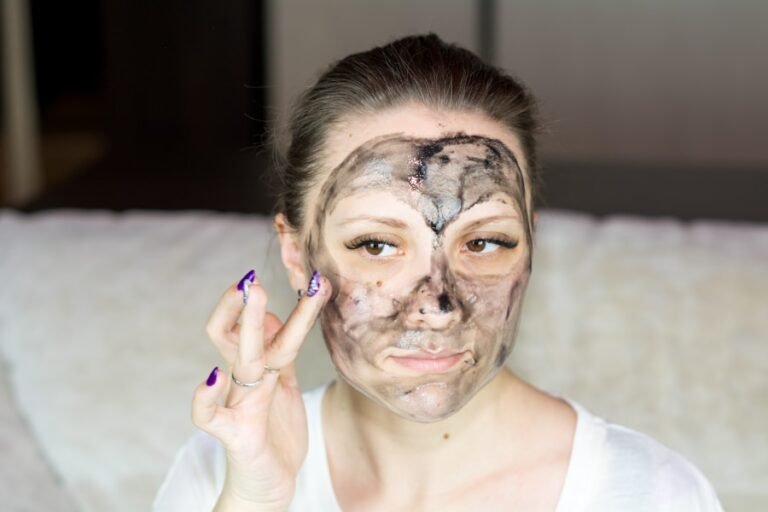The Ultimate Guide to Treating Strep Throat Naturally at Home
Strep throat is a common bacterial infection that affects the throat and tonsils. It is caused by the Streptococcus pyogenes bacteria and is highly contagious. Strep throat can cause a range of symptoms, including sore throat, difficulty swallowing, fever, and swollen lymph nodes. It is important to understand the causes, symptoms, and risks associated with strep throat in order to effectively treat and prevent the spread of this infection.
Understanding Strep Throat: Causes, Symptoms, and Risks
Strep throat is primarily caused by the Streptococcus pyogenes bacteria, also known as group A streptococcus. This bacteria is highly contagious and can be spread through respiratory droplets when an infected person coughs or sneezes. It can also be spread through direct contact with an infected person’s saliva or nasal secretions.
Common symptoms of strep throat include a severe sore throat, difficulty swallowing, fever, headache, and swollen lymph nodes in the neck. Some individuals may also experience a red rash known as scarlet fever. It is important to note that not all sore throats are caused by strep throat, as viral infections can also cause similar symptoms.
If left untreated, strep throat can lead to complications such as tonsillitis, sinusitis, ear infections, and even rheumatic fever. Rheumatic fever is a serious condition that can cause inflammation in the heart, joints, skin, and brain. It is important to seek medical attention if you suspect you have strep throat in order to receive appropriate treatment and prevent these complications.
The Benefits of Natural Remedies for Strep Throat
While antibiotics are commonly prescribed to treat strep throat, there are several benefits to using natural remedies as well. Natural remedies can help alleviate symptoms and support the body’s immune system without the potential side effects of antibiotics.
One advantage of natural remedies is that they can help soothe a sore throat and reduce inflammation. For example, drinking warm herbal teas with honey and lemon can provide relief for a sore throat. Gargling with warm salt water can also help reduce pain and inflammation.
Certain natural remedies also have antimicrobial properties that can help fight off the bacteria causing strep throat. For instance, garlic has been shown to have antibacterial properties and can be consumed raw or in supplement form to support the immune system. Honey has also been found to have antimicrobial properties and can be added to warm water or tea for soothing relief.
How to Prevent the Spread of Strep Throat
Preventing the spread of strep throat is crucial in order to protect yourself and others from infection. Here are some tips for preventing the spread of strep throat:
1. Practice good hand hygiene: Wash your hands frequently with soap and water for at least 20 seconds, especially after coughing, sneezing, or blowing your nose. If soap and water are not available, use hand sanitizer that contains at least 60% alcohol.
2. Cover your mouth and nose: When coughing or sneezing, cover your mouth and nose with a tissue or your elbow to prevent respiratory droplets from spreading.
3. Avoid close contact: Avoid close contact with individuals who have strep throat or other respiratory infections. This includes avoiding sharing utensils, cups, or other personal items.
4. Clean and disinfect frequently touched surfaces: Clean and disinfect frequently touched surfaces, such as doorknobs, light switches, and countertops, regularly to reduce the risk of contamination.
The Importance of Rest and Hydration in Strep Throat Recovery
Rest and hydration are crucial for a speedy recovery from strep throat. When you have strep throat, your body is fighting off an infection, and it needs adequate rest to heal properly. Resting allows your immune system to focus on fighting the bacteria and reduces the risk of complications.
In addition to rest, staying hydrated is essential for strep throat recovery. Drinking plenty of fluids helps soothe a sore throat and prevents dehydration. Warm liquids, such as herbal teas or warm water with honey and lemon, can provide additional relief for a sore throat.
It is important to avoid caffeine and alcohol, as they can dehydrate the body. Instead, opt for water, herbal teas, and clear broths to stay hydrated. Sucking on ice chips or popsicles can also help soothe a sore throat while providing hydration.
Top Foods to Eat and Avoid When Treating Strep Throat
Eating the right foods can help alleviate strep throat symptoms and support the healing process. Here are some foods that can help:
1. Soft foods: Eating soft foods that are easy to swallow can help reduce discomfort when you have strep throat. Examples include mashed potatoes, yogurt, smoothies, and soups.
2. Warm liquids: Drinking warm liquids can provide relief for a sore throat. Herbal teas, warm water with honey and lemon, and warm broths are all good options.
3. Foods rich in vitamin C: Vitamin C is known to support the immune system. Include foods such as citrus fruits, strawberries, bell peppers, and leafy greens in your diet.
On the other hand, there are certain foods that should be avoided when treating strep throat:
1. Spicy foods: Spicy foods can irritate a sore throat and make symptoms worse. Avoid foods such as hot peppers, spicy sauces, and spicy seasonings.
2. Acidic foods: Acidic foods can also irritate a sore throat. Avoid citrus fruits, tomatoes, vinegar-based dressings, and other acidic foods.
3. Hard and crunchy foods: Hard and crunchy foods can be difficult to swallow when you have a sore throat. Avoid foods such as chips, crackers, and raw vegetables.
Herbal Remedies for Strep Throat: Echinacea, Sage, and More
Herbal remedies can be effective in alleviating strep throat symptoms and supporting the immune system. Here are some herbs that can help:
1. Echinacea: Echinacea is a popular herb known for its immune-boosting properties. It can be taken in supplement form or consumed as a tea to support the body’s natural defenses.
2. Sage: Sage has antimicrobial properties and can help soothe a sore throat. Gargling with sage tea or using sage essential oil in a diffuser can provide relief.
3. Marshmallow root: Marshmallow root has soothing properties and can help alleviate throat irritation. It can be consumed as a tea or taken in supplement form.
Essential Oils for Strep Throat: Tea Tree, Thyme, and Peppermint
Essential oils can also be used to alleviate strep throat symptoms and support the healing process. Here are some essential oils that can help:
1. Tea tree oil: Tea tree oil has antimicrobial properties and can help fight off the bacteria causing strep throat. It can be diluted with a carrier oil and applied topically to the neck or used in a diffuser.
2. Thyme oil: Thyme oil has antibacterial properties and can help reduce inflammation in the throat. It can be diluted with a carrier oil and applied topically or used in a diffuser.
3. Peppermint oil: Peppermint oil has soothing properties and can help relieve pain and inflammation in the throat. It can be diluted with a carrier oil and applied topically or used in a diffuser.
The Power of Salt Water Gargling for Strep Throat Relief
Salt water gargling is a simple yet effective remedy for strep throat relief. Gargling with warm salt water can help reduce pain and inflammation in the throat. The salt helps draw out excess fluid from the tissues, reducing swelling and discomfort.
To gargle with salt water, dissolve half a teaspoon of salt in a glass of warm water. Take a sip of the solution, tilt your head back, and gargle for 30 seconds. Spit out the solution and repeat several times a day as needed.
Homeopathic Remedies for Strep Throat: Belladonna, Hepar Sulphuris, and More
Homeopathic remedies can be used to alleviate strep throat symptoms and support the body’s natural healing process. Here are some homeopathic remedies that can help:
1. Belladonna: Belladonna is often used for sudden onset of symptoms, such as a high fever, red throat, and swollen tonsils. It can be taken in pellet form or as a liquid.
2. Hepar Sulphuris: Hepar Sulphuris is often used for symptoms such as a sore throat with sharp pain, difficulty swallowing, and swollen lymph nodes. It can be taken in pellet form or as a liquid.
3. Mercurius solubilis: Mercurius solubilis is often used for symptoms such as a sore throat with excessive saliva production, bad breath, and swollen tonsils. It can be taken in pellet form or as a liquid.
When to Seek Medical Attention for Strep Throat
While natural remedies can be effective in alleviating strep throat symptoms, it is important to know when to seek medical attention. Here are some signs that it’s time to see a doctor:
1. Severe or persistent symptoms: If your symptoms are severe or persist for more than a few days despite home remedies, it is important to see a doctor.
2. Difficulty breathing or swallowing: If you have difficulty breathing or swallowing, it is important to seek immediate medical attention.
3. High fever: If you have a high fever that does not respond to over-the-counter fever reducers, it is important to see a doctor.
4. Recurrent strep throat: If you have recurrent strep throat infections, it is important to see a doctor to determine the underlying cause and receive appropriate treatment.
Final Thoughts: Combining Natural and Medical Approaches for Strep Throat Treatment
In conclusion, strep throat is a common bacterial infection that can cause a range of symptoms. While antibiotics are commonly prescribed to treat strep throat, natural remedies can also be effective in alleviating symptoms and supporting the healing process. It is important to practice good hygiene, rest, and stay hydrated when recovering from strep throat. Additionally, incorporating herbal remedies, essential oils, salt water gargling, and homeopathic remedies can provide additional relief. However, it is important to consult with a healthcare professional before trying any new remedies or treatments.
Strep throat is a common infection that can cause discomfort and inconvenience. By understanding the causes, symptoms, and risks associated with strep throat, individuals can take appropriate measures to prevent the spread of the infection. Natural remedies such as herbal remedies, essential oils, salt water gargling, and homeopathic remedies can provide relief for strep throat symptoms. However, it is important to seek medical attention when necessary and consult with a healthcare professional before trying any new remedies or treatments. Taking care of oneself and seeking medical attention when needed are essential for a speedy recovery from strep throat.









